Jun
11
with Marc Ribot w/ Ikue Mori – (live score to Jennifer Reeves’ “Shadows Choose Their Horrors” and other shorts), Nels Cline (solo), Shahzad Ismaily & opening set by Matana Roberts
Tue June 11th, 2013
10:00PM
Main Space
Minimum Age: 18+
Doors Open: 9:30PM
Show Time: 10:00PM
Event Ticket: $25/$30/$35
Part of the LPR X 5 Series
$25 Student at the door only
**************************
TABLE SEATING POLICY
Table seating for all seated shows is reserved exclusively for ticket holders who purchase “Table Seating” tickets. By purchasing a “Table Seating” ticket you agree to also purchase a minimum of two food and/or beverage items per person. Table seating is first come, first seated. Please arrive early for the best choice of available seats. Seating begins when doors open. Tables are communal so you may be seated with other patrons. We do not take table reservations.
A standing room area is available by the bar for all guests who purchase “Standing Room” tickets. Food and beverage can be purchased at the bar but there is no minimum purchase required in this area.
All tickets sales are final. No refund or credits.
Bill Frisell
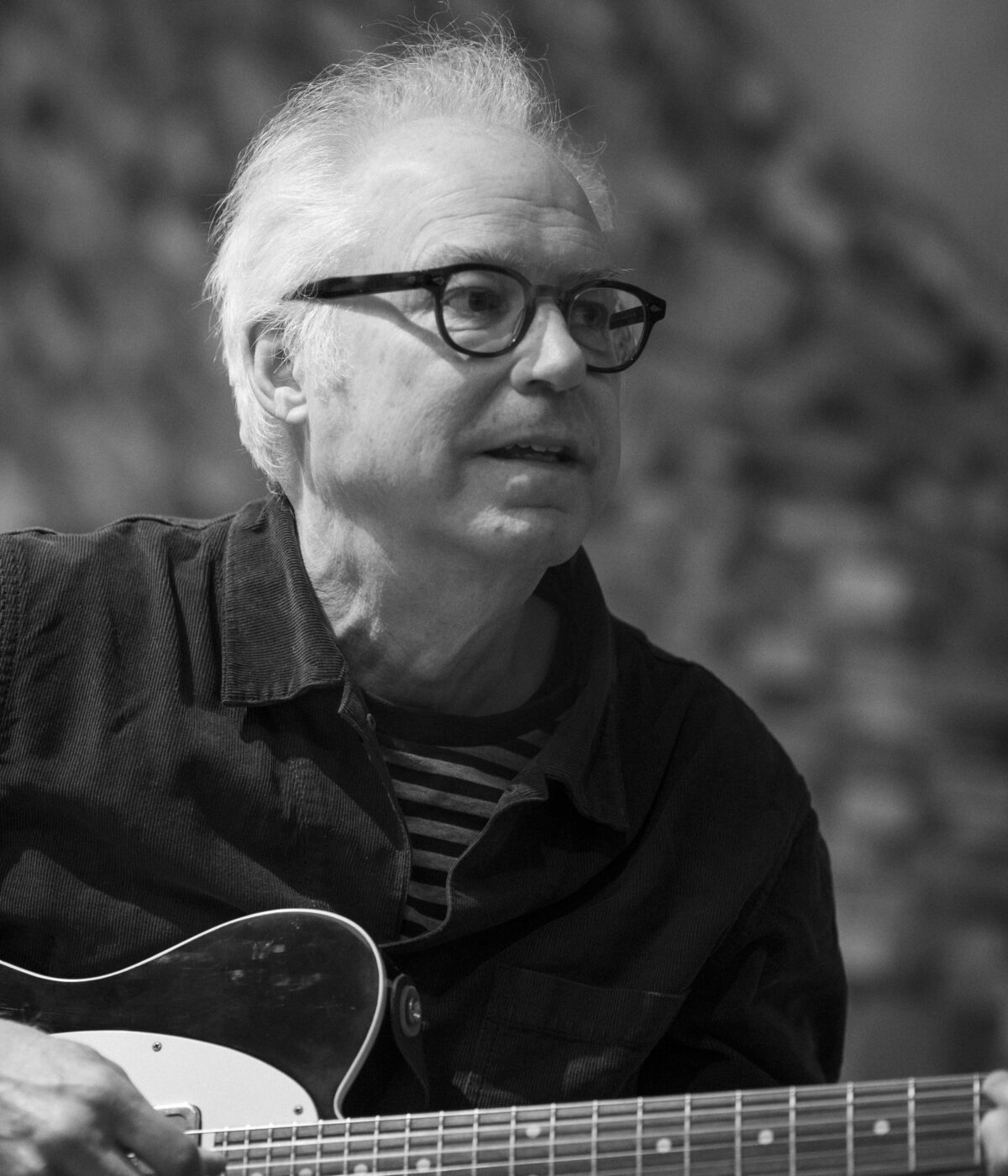
Guitarist Bill Frisell is widely known as one of the most versatile players in jazz history, despite possessing an instantly recognizable warm, bell-like tone on his instrument. Whether playing avant-jazz with his own bands, exploring various aspects of Americana and pop, or composing film scores, Frisell’s focus on timbral clarity and elegance shines through. His early recordings, such as 1985’s Rambler, showcased his ability to shift seamlessly from avant-jazz to an open exploration of folk and pop styles, one that would define his later playing on recordings like 1993’s Have a Little Faith. And although his work is steeped in jazz, Frisell’s many tastes include characteristics of rock, country, and bluegrass, articulated wonderfully on his 1997 breakthrough Nashville and 1999’s Good Dog, Happy Man. Such liberality explains his willingness to expand his tonal palette beyond the typical jazz guitarist. Where so many conventional players define themselves by speed and facility, Frisell has carved a niche by virtue of his much-imitated sound. He has been a go-to sideman, particularly for his tone, working with everyone from Chet Baker and Paul Motian to John Zorn ‘s Naked City. He has racked up hundreds of sideman credits and released more than 90 albums as a leader or co-leader, including everything from solo guitar dates (Music Is) to a dozen themed albums paying homage to pop songwriters (2011’s All We Are Saying) and film composers (2016’s When You Wish Upon a Star) to dozens of duo, trio, and band dates, including two stellar live dates with bassist Thomas Morgan in 2017 (Small Town) and 2019 (Epistrophy) that marked his return to ECM .
Born in Baltimore, Frisell grew up in Denver, Colorado. He began playing the clarinet in the fourth grade and took up guitar a few years later for his personal amusement. He continued with the clarinet, playing in school concerts and marching bands. Frisell briefly considered playing classical clarinet professionally. He played guitar in rock and R&B bands as a teenager (high school classmates included Philip Bailey , Andrew Woolfolk, and Larry Dunn, future members of the funk group Earth, Wind & Fire ). He discovered jazz in the music of Wes Montgomery and began to study it. Dale Bruning , a Denver-based guitarist and educator, fed his fascination with jazz.
Frisell decided to make guitar his primary instrument, and after briefly attending the University of Northern Colorado, he moved to Boston in 1971 to attend the Berklee School of Music. There he studied with Michael Gibbs and John Damian . While at Berklee, Frisell connected with other like-minded players ( Pat Metheny was a classmate). He also studied with Jim Hall , who became an important influence, especially in terms of harmony. In the mid-’70s, Frisell began moving away from pure bebop and started fusing jazz with his other musical interests. At about this time, he began to develop his atmospheric, quasi-microtonal style. He discovered that by using a guitar with a flexible neck, he could manipulate the instrument’s intonation. A combination of experimental techniques and signal processors like delay and reverb gave Frisell a sound unlike any other guitarist.
In the late ’70s, he traveled to Belgium. There he met Manfred Eicher , the founder of ECM Records . Beginning in the early ’80s, Frisell recorded prolifically for the label as leader and sideman, with such musicians as Paul Motian and Jan Garbarek . He continued with the label throughout the decade, earning a reputation as ECM ‘s “house guitarist.” Frisell became much acclaimed by critics for his sophisticated yet accessible work. In the ’80s, he moved to New York, where he worked with many of the most creative musicians active on the city’s “downtown” jazz scene.
In the ’80s and ’90s, he recorded and performed with a huge variety of artists, not all of them jazz musicians. Collaborators included rock and pop musicians (drummer Ginger Baker , singers Marianne Faithfull and Elvis Costello ), experimental jazz musicians (saxophonist/composers John Zorn and Tim Berne ), and at least one classical composer ( Gavin Bryars ). Frisell composed soundtracks for the silent films of Buster Keaton. His 1996 album, Quartet, won the Deutsche Schallplattenpreis, the German equivalent of the Grammy. Frisell became an annual winner of various magazine polls for his solo work and recordings.
By the end of the ’90s, Frisell was one of the most well-known jazz musicians in the world, with an audience and an aesthetic that transcended the boundaries of any given style. It should be mentioned that, while he is best known for his somewhat “ambient” guitar technique, he is a swinging, harmonically fluent jazz player when the occasion warrants. Frisell moved to Seattle in 1989 and stayed active as the 21st century began, releasing the solo guitar album Ghost Town in 2000, followed by a set with Dave Holland and Elvin Jones in 2001. Blues Dream also appeared that same year, followed by The Willies in 2002. East/West and Richter 858 were both released in 2005, and a set with Ron Carter and Paul Motian came out in 2006. History, Mystery followed in 2008.
In 2010, a trio recording titled Beautiful Dreamers was released by Savoy Jazz . A collection of covers and originals, it featured Frisell in the company of violinist Eyvind Kang and drummer Roy Royston . Frisell also appeared as a sideman on Reveille, the debut solo offering from Kermit Driscoll , former bassist of the guitarist’s earlier working trio. Abigail Washburn ‘s 2011 album, City of Refuge, featured Frisell as lead guitarist. He kicked off his own series of releases in 2011 with Lagrimas Mexicanas, a series of duets with Brazilian guitarist and vocalist Vinicius Cantuária ; the album was produced by Lee Townsend and released on the Entertainment on Disc / eOne imprint. Townsend also produced Frisell’s return to Savoy Jazz , Sign of Life. That album featured a reunion of the 858 Quartet with Frisell on guitars, Jenny Scheinman on violin, Eyvind Kang on viola, and Hank Roberts on cello.
In 2011, Frisell delved into the music of John Lennon with All We Are Saying…. A longtime fan of the Beatles singer/songwriter, Frisell was joined once again by violinist Scheinman as well as guitarist Greg Leisz , bassist Tony Scherr , and drummer Kenny Wollesen on such classics as “Across the Universe,” “Imagine,” “You’ve Got to Hide Your Love Away,” “Julia,” “Beautiful Boy,” and others. Hewing closely to Lennon ‘s original versions, Frisell found ways to explore the melody and emotional content of Lennon ‘s songs without having to overtly change the harmonic content of the material. 2012 also saw the return of Floratone — his collective with Lee Townsend, Matt Chamberlain , and Tucker Martine. Floratone II was released on March 6, 2012. Frisell also reestablished his connection with John Zorn ‘s music, appearing as part of the ensemble for the composer’s Gnostic Preludes with harpist Carol Emmanuel and Kenny Wollesen on vibraphone. The album was issued on Tzadik a week after Floratone II. He released another album for the label in early 2013. Entitled Silent Comedy, it featured the guitarist in a solo setting. Frisell the composer returned in a big way in June of that year, employing his 858 Quartet and drummer Rudy Royston . Together they recorded Big Sur, his debut for Sony ‘s relaunched OKeh imprint. In 2013, Frisell appeared with his Gnostic Trio bandmates (harpist Carol Emmanuel and vibist/percussionist Kenny Wollesen ) on John Zorn ‘s In Lambeth: Visions from the Walled Garden of William Blake.
Frisell kicked off 2014 with an appearance on Scheinman ‘s Sony Masterworks set The Littlest Prisoner, scored and recorded the soundtrack to Bill Morrison’s documentary The Great Flood, and duetted with Greg Cohen on the bassist’s Golden State album. Guitar in the Space Age!, Frisell’s tribute to some of the guitar music of the late ’50s and early ’60s, was issued by OKeh in October. His next label offering was When You Wish Upon a Star, a tribute to film composers, television scores, and the musicians who played on them. Along with tributes to Elmer Bernstein and Ennio Morricone , among others, the set featured covers of the Disney tune in the title, the theme from the James Bond film You Only Live Twice, and “The Shadow of Your Smile” from the motion picture score of The Sandpiper. Issued in early 2016, the recording hit number two on the jazz charts.
Frisell appeared on ECM as a sideman for dates by pianist Stefano Bollani (Joy in Spite of Everything, 2014) and Andrew Cyrille (The Declaration of Musical Independence, 2016). He made his official return to the label as a (co-)leader — his first since 1988’s Lookout for Hope — in 2017 with Small Town, a duo set cut live at the Village Vanguard with longtime friend and bassist Thomas Morgan . The following year, Frisell returned with his second-ever solo guitar album, the Lee Townsend-produced Music IS, which featured all original songs. Later that year, he revisited his musical partnership with drummer Andrew Cyrille on Lebroba for ECM in a trio offering that also included trumpeter Wadada Leo Smith . In the spring of 2019, ECM issued Epistrophy, the guitarist’s second collaboration with Morgan , which was once more cut live at the Village Vanguard. October 2019 brought Harmony, a set that teamed the guitarist with vocalist Petra Haden , guitarist Luke Bergman, and cellist Hank Roberts ; it was his first release for Blue Note Records .
In April 2020, Germany’s ACT label issued Americana. The date was led by Swiss-born, New York-based harmonicist and composer Gregoire Maret with pianist Romain Collin and Frisell. The music on the set reflected the views of the two immigrant composers ( Collin hails from France), with Frisell adding authentic Yankee ballast via the experience of his own roots recordings such as Nashville, Good Dog, Happy Man, and Disfarmer. In addition to seven original tunes, the trio delivered covers of Jimmy Webb ‘s “Wichita Lineman” and Justin Vernon ‘s “Re: Stacks.” In June and July, Frisell issued a pair of singles with bassist Morgan and drummer Royston: the Civil Rights anthem “We Shall Overcome” and “Keep Your Eyes Open,” a redone version of an original composition that was first recorded for 1997’s Nashville. In August, they appeared on Frisell’s Valentine, released by Blue Note . Produced by Lee Townsend and recorded by Tucker Martine, the 13-song trio set included current and catalog originals, jazz standards, traditional songs, and covers.
Marc Ribot w/ Ikue Mori – (live score to Jennifer Reeves’ “Shadows Choose Their Horrors” and other shorts)
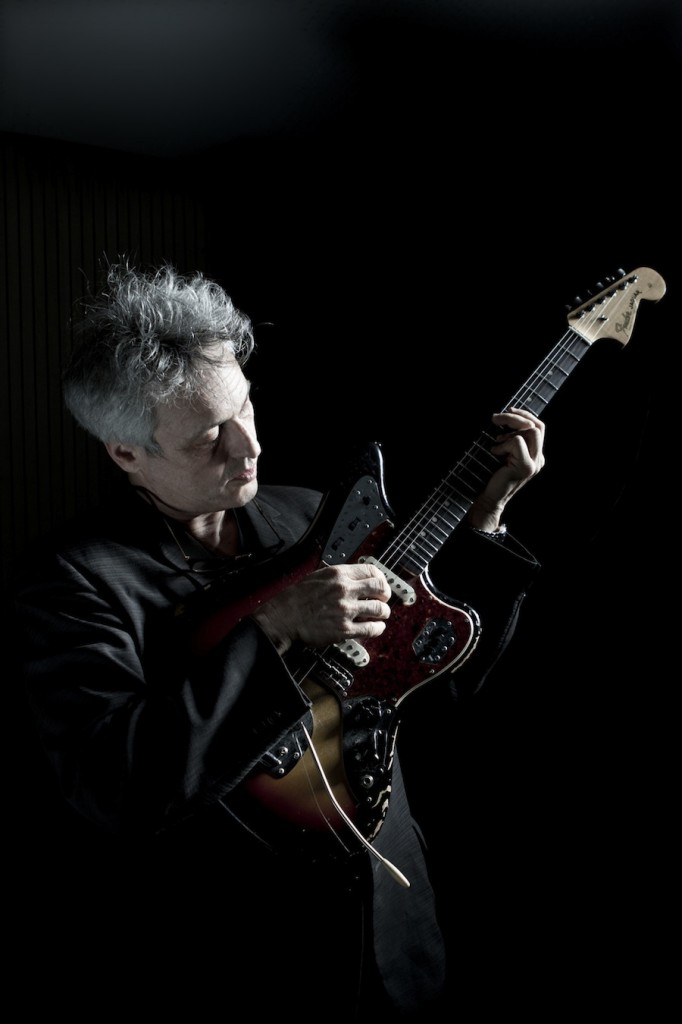
Marc Ribot, who the New York Times describes as “a deceptively articulate artist who uses inarticulateness as an expressive device,” has released over 20 albums under his own name over a 30-year career, exploring everything from the pioneering jazz of Albert Ayler to the Cuban son of Arsenio Rodríguez. His latest solo release, Silent Movies (Pi Recording 2010) has been described as a “down-in-mouth-near master piece” by the Village Voice and has landed on several Best of 2010 lists including the LA Times and critical praise across the board. 2013 saw the release of “Your Turn” (Northern Spy), the sophomore effort from Ribot’s post-rock/noise trio Ceramic Dog, and 2014 saw the monumental release: “Marc Ribot Trio Live at the Village Vanguard” (Pi Recordings), documenting Marc’s first headline and the return of Henry Grimes at the historical venue in 2012 already included on Best of 2014 lists including Downbeat Magazine and NPR’s 50 Favorites.
Rolling Stone points out that “Guitarist Marc Ribot helped Tom Waits refine a new, weird Americana on 1985’s Rain Dogs, and since then he’s become the go-to guitar guy for all kinds of roots-music adventurers: Robert Plant and Alison Krauss, Elvis Costello, John Mellencamp.” Additional recording credits include Neko Case, Diana Krall, Elton John/Leon Russell’s The Union, Solomon Burke, John Lurie’s Lounge Lizards, Marianne Faithful, Joe Henry, Allen Toussaint, Medeski Martin & Wood, Caetono Veloso, Susana Baca, Allen Ginsburg, Madeline Peyroux, Nora Jones, Jolie Holland, Akiko Yano, The Black Keys, and many others. Marc works regularly with Grammy® award winning producer T Bone Burnett and NY composer John Zorn. He has also composed and performed on numerous film scores such as “Walk The Line” (Mangold), “The Kids Are All Right,” and “The Departed” (Scorcese).
“…he can sit down with just his guitar and simultaneously confound you with technique, beauty, and surprise.” – John Garratt and Will Layman, PopMatters Picks: The Best Music of 2010 for the album “Silent Movies”
Marc Ribot official site
Marc Ribot on Facebook
Marc Ribot on Twitter
Marc Ribot on Vimeo
Marc Ribot on Soundcloud
/////////////////
SHADOWS CHOOSE THEIR HORRORS
2005, 16mm to Digital Beta, 31 minutes
Directed and Edited by Jennifer Reeves
Live score by Marc Ribot
Written by Jennifer Reeves with Winsome Brown
Starring Winsome Brown, Tanya Selvaratnam and Ariane Anthony
Shadows Choose Their Horrors is the dark and melodic diary of a necromancer living on the edge between the mortal world and the realm of lost souls. Sinister forces surround Madame G (Winsome Brown) as she tries to bond with her favorite undead. Using magic and ritual to give them new life and pleasures, Madame G is shocked by the devastating outcome. This camp and experimental reworking of early silent horror was inspired by both the un-staged Aaron Copland ballet Grohg, and the film that stirred the young Copland to write his ballet, Nosferatu.
Shadows Choose Their Horrors was originally created for a live performance of Grohg by the American Symphony Orchestra at Bard Music Festival, with Leon Botstein conducting.
/////////////////
Jennifer Reeves (b. 1971, Sri Lanka) is a New York-based filmmaker working primarily on 16mm film. Reeves was named one of the “Best 50 Filmmakers Under 50” in the film journal Cinema Scope in the spring of 2012. Her films have shown extensively, from the Berlin, New York, Vancouver, London, Sundance, and Hong Kong Film Festivals to many Microcinemas in the US and Canada, the Robert Flaherty Seminar, and the Museum of Modern Art. Full multiple-screening retrospectives of her work have been held in recent years at Era New Horizons Film Festival in Wroclaw, Poland, Kino Arsenal in Berlin, Anthology Film Archives in New York, and San Francisco Cinematheque. Her most recent film COLOR NEUTRAL premiered at the New York Film Festival in October 2014.
Reeves has made experimental films since 1990. She does her own writing, cinematography, editing, and sound design. Her subjective and personal films push the boundaries of film through optical-printing and direct-on-film techniques. Reeves has consistently explored themes of memory, mental health and recovery, feminism and sexuality, landscape, wildlife, and politics from many different angles.
Since 2003 Reeves has collaborated with some of the finest composer/ musicians today, including Anthony Burr, Skúli Sverrisson, Elliott Sharp, Zeena Parkins, Marc Ribot, Erik Hoversten, Pitt Reeves, Hilmar Jensson, and Dave Cerf. As the daughter of a trumpeter, gravitating toward film and music collaborations was quite natural for Reeves. Her most ambitious film and music performance, the feature-length double-projection WHEN IT WAS BLUE (2008), premiered at Toronto International Film Festival with live music by composer/collaborator Skúli Sverrisson.
Reeves has also made a number of experimental narratives, most notably her highly acclaimed feature THE TIME WE KILLED. The Village Voice Film Critic’s poll (2005) honored THE TIME WE KILLED with votes from six film critics for categories including: Best Film, Best Cinematography, and Best Performance.
Reeves also teaches animation part-time at The Cooper Union.
Jennifer Reeves official site
Nels Cline (solo)
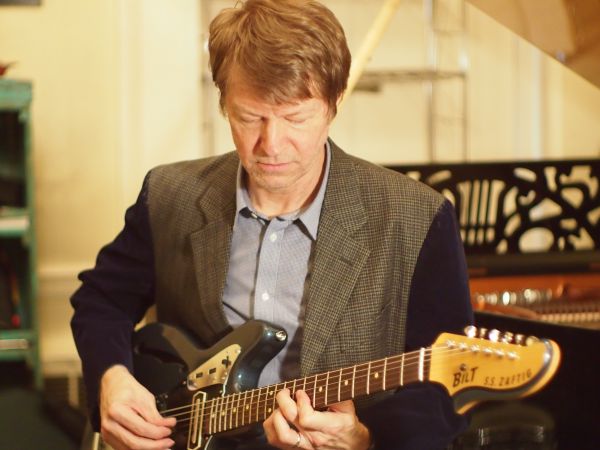
Nels Cline official site | Nels Cline on Facebook | Nels Cline on Twitter
Guitar explorer NELS CLINE is best known these days as the lead guitarist in the band Wilco. His recording and performing career – spanning jazz, rock, punk, and experimental – is well into its fourth decade, with over 160 recordings, including at least 30 for which he is leader. Born in Los Angeles in 1956, Cline has received many accolades including Rolling Stone anointing him as both one of 20 “new guitar gods” and one of the top 100 guitarists of all time.
Beyond Wilco, he leads The Nels Cline Singers (featuring Scott Amendola and bassist Trevor Dunn), and plays with Fig (a collaboration with Yuka Honda), BB&C (a collective with Time Berne & Jim Black), Pillow Wand (duo with guitarist Thurston Moore), and a new duo project with jazz guitar prodigy Julian Lage. A few of the other musicians with whom he has performed and/or recorded include: Ramblin’ Jack Elliot, Yoko Ono, Jeff Gauthier, Mike Watt, Carla Bozulich, Vinny Golia, Marc Ribot, Tinariwen, Julius Hemphill, Charlie Haden, Wadada Leo Smith, Lydia Lunch, and Lee Ranaldo.
Photo credit Yuka C. Honda
Shahzad Ismaily
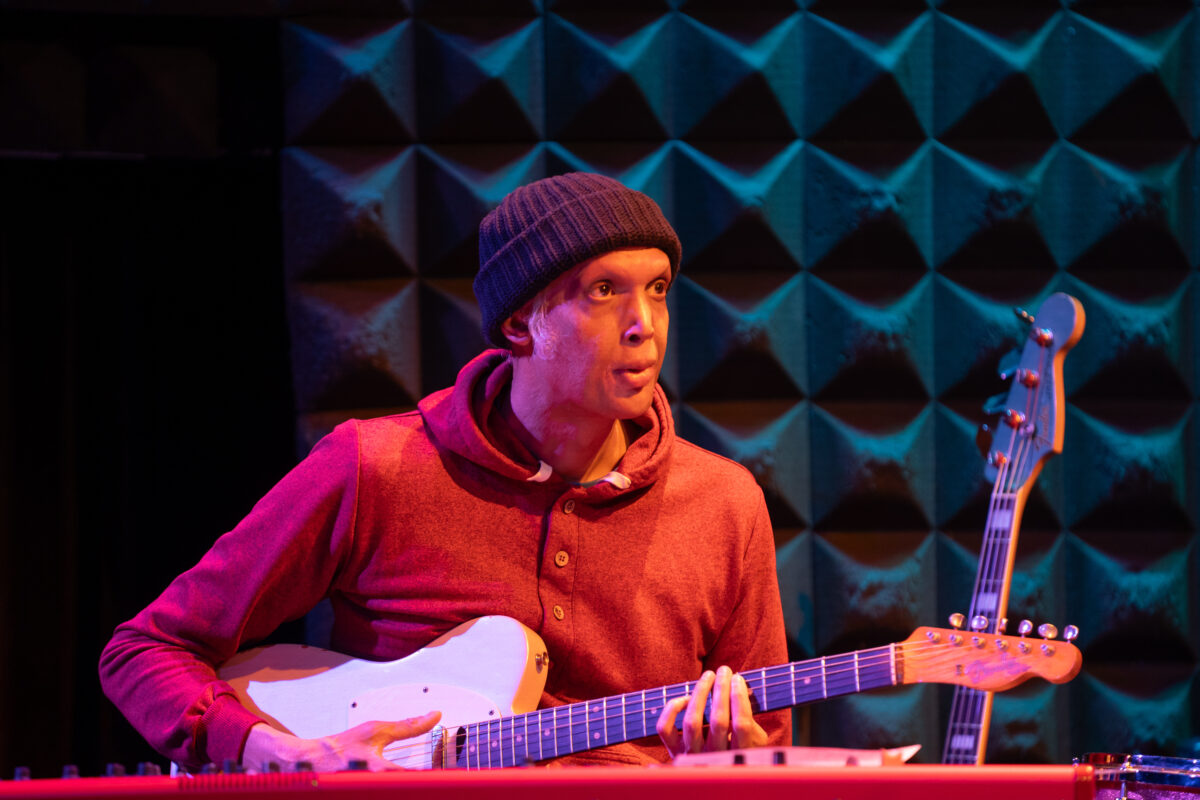
Shahzad Ismaily was born in the States to Pakistani parents who emigrated here just before his birth. He grew in a bicultural household, always following a multitude of paths and perusals. He is mostly self-taught as a musician, composer, recording engineer, and producer. He primarily plays electric bass, drums, percussion, guitar, synthesizers, and all manner of sound-makers procured in life’s travels. He has recorded and performed with a diverse crew of artMakers, Yoko Ono, Laurie Anderson, Beth Orton, Colin Stetson, Ben Frost, Bonnie Prince Billy, Damien Rice, Jolie Holland, JFDR, Secret Chiefs 3, Sam Amidon, further and further. He has been an integral member of festival/residency/collective experiences such as the People Festival (the brainchild of Bon Iver, The National, and the Michelberger), the Eau Claires festival, the Moers Festival. He has done work for dance and theater pieces, such as the film Frozen River (Oscar-nominated and Sundance award-winning), Inkboat (a butoh crew from California/Switzerland), and visual artist Laleh Khorramian. This year alone, he’ll teach in residence at BANFF, the Oklahoma Center for Contemporary Arts, the Monheim Triennale, and very happily, the Atlantic Center for the Arts. Currently based in Brooklyn and working out of the recording studio collective he founded and created, Figure 8 Recording, he has studied music extensively in Pakistan, India, Turkey, Mexico, Chile, Japan, Indonesia, Morocco, and Iceland.
opening set by Matana Roberts
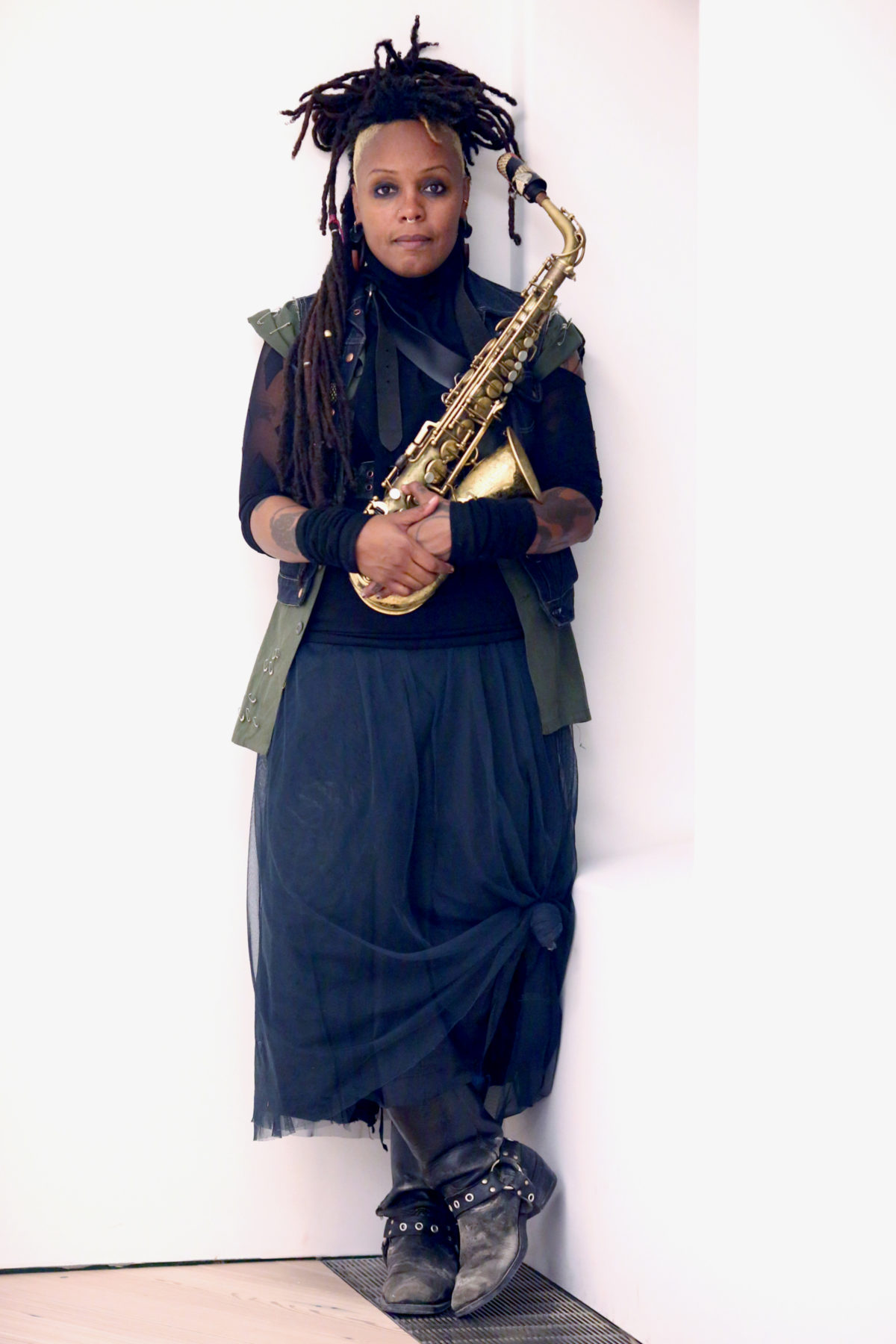
Matana Roberts on Constellation Records | Matana Roberts on Facebook | Matana Roberts on Twitter | Matana Roberts on Tumblr
Roberts has been called “a major talent” (The Wire) and “the spokeswoman for a new, politically conscious and refractory Jazz scene” (Jazzthetik). Her Coin Coin work has been widely and highly praised for its stylistic innovations and narrative power. Noted music critic Peter Margasak has written of Coin Coin: “Memory is a powerful thing, but it’s so private, fluid, and unreliable that it can seem almost impossible to capture in a work of art—and history is often no more stable, once you look closely enough. Roberts has succeeded at evoking both, though, and gives her audience a long look at something ghostly, tragic, and beautiful. She is carving out her own aesthetic space, startling in its originality and gripping in its historic and social power.”
A self-taught mixed media composer, the Chicago-raised and New York City-based Roberts earned two degrees in performance from a smattering of American institutions but received her main training from free arts programs in the American Public School System. She is a past member of the Black Rock Coalition (BRC) and the The Association for the Advancement of Creative Musicians (AACM). She has been a Van Lier Fellow, a Brecht Forum Fellow, a Copeland Fellow, a Jazz Makes Fellow, an ICASP fellow, a 2013 FCA fellow and a seven-time Alpert Award In The Arts nominee, receiving the award in 2014. She has been invited to teach, lecture, run workshops and/or take up artistic residencies in countless places under diverse conditions and with diverse communities over the past decade and is a past faculty member of the Banff Creative Music Workshop, School for Improvised Music, and Bard College MFA, where she was co-chair of the Music and Sound Department 2011-12. Roberts won the Doris Duke Impact Award in 2014.
Roberts has played with and alongside Rob Mazurek, Myra Melford, Vijay Iyer, Roscoe Mitchell, Greg Tate, Nicole Mitchell, Henry Grimes, Kyp Malone, Meshell Ndegeocello, Jayne Cortez, Seb Rochford, Fred Anderson, Latasha Diggs, George Lewis, Tyshawn Sorey, David Berhman, Pauline Oliveros, Reg E. Gaines, Daniel Givens, Savion Glover, Anthony Braxton, Kid Lucky, Liberty Ellman, Amina Claudine Meyers, Jeff Parker, Handsome Furs, Robert Mitchell, Quest Love, Julius Hemphill Sextet, Merce Cunningham, Joe Maneri, Beans, Bill T Jones, Josh Abrams, Chad Taylor, Dave Douglas and John Herndon among many others. She has recorded as a guest musician with rock, pop and electronic groups as diverse as Godspeed You! Black Emperor, TV On The Radio, Savath & Savalas, Thee Silver Mt. Zion, and performance artists My Barbarian.
Of her work, Matana says the following:
“At my artistic core, I am firmly dedicated to creating a unique and very personal experiential body of sound work that speaks to, and reminds people of all walks of life to reach, stand up, give voice, regardless of difference, created from mere labels of intellectual classification. In my ideal world the idea of ‘difference’, is an illusion designed only for the purpose of modern economic division and elitist intellectual hierarchy. Through my life’s work, I stand creatively in defiance.”
Photo Credit: Paula Court

